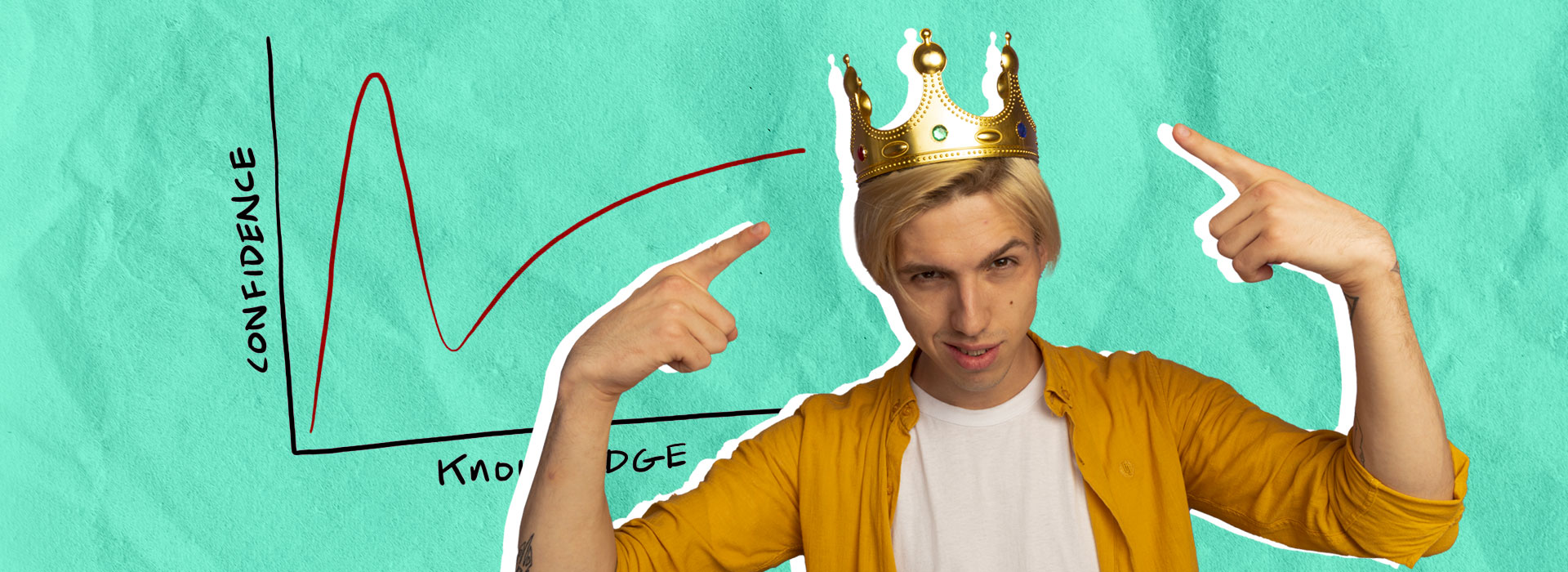1- What is the Dunning-Kruger effect?
The Dunning-Kruger effect is a cognitive bias identified in 1999 by psychologists David Dunning and Justin Kruger. It describes the tendency of people with little knowledge or skills in a field to overestimate their own expertise. Conversely, more competent individuals tend to underestimate their abilities, thinking that what they know is accessible to everyone.
This phenomenon is based on a paradox: to correctly evaluate a subject, one must already have mastered the basics. However, people with low competence precisely lack the knowledge required to realize their own shortcomings.
The Dunning-Kruger effect manifests itself in many areas, for example:
– Work and business: Employees with limited skills may perceive themselves as particularly competent and underestimate the experts in their field.
– Medicine and science: Some individuals reject the scientific consensus on topics such as vaccines or climate change, convinced they have “understood” what the experts supposedly overlook.
– Education: Students may believe they have fully mastered a subject after just a few readings, underestimating the complexity of academic knowledge.
2- The Dunning-Kruger effect and fake news
One of the most fertile grounds for the Dunning-Kruger effect is disinformation. Social networks are full of people convinced they have uncovered a hidden truth that the “elites” or “mainstream media” supposedly want to conceal.
This phenomenon can be explained by several factors:
– A lack of knowledge about how the media and scientific research work, which leads some to reject reliable sources in favor of simplistic and inaccurate information.
– An illusion of understanding: A YouTube video or a Facebook post can give the impression of grasping a complex subject in just a few minutes, when in reality it would take years of study to truly master its nuances.
– The confirmation bias: Individuals tend to favor information that confirms their beliefs, even if it is false.
3- Dunning-Kruger Effect and Conspiracy Theories
The Dunning-Kruger effect plays a key role in the spread of conspiracy theories. Many conspiracy theorists imagine themselves to be more enlightened than the majority, convinced they have uncovered a secret that scientists, journalists, and institutions have either missed—or are deliberately hiding.
Take the example of the “flat-earthers” (those who believe the Earth is flat). They reject centuries of scientific observation and evidence, relying instead on simplistic and flawed arguments. Yet they remain convinced they are more intelligent than the majority and possess knowledge that others ignore.
Another striking example is the anti-vaccine movements, where people without scientific training claim to understand the effects of vaccines better than researchers who have dedicated their lives to the study of immunology.
4- How to combat the Dunning-Kruger effect?
1- Encourage intellectual humility: Being aware that our knowledge is limited and accepting that we may be wrong is an essential first step.
2- Promote education and critical thinking: Learning to analyze sources, understand the scientific method, and detect cognitive biases helps avoid falling into this trap.
3- Rely on reliable sources: Be wary of sensationalist information and prioritize recognized media outlets and domain experts.
4- Accept the complexity of issues: Most major questions (science, politics, economics) cannot be summed up in a punchline or a viral video.
The Dunning-Kruger effect illustrates how a lack of competence can lead to excessive confidence. This bias plays a major role in misinformation and adherence to conspiracy theories. By developing critical thinking and valuing expertise, it is possible to better guard against this illusion of knowledge and encourage more enlightened, constructive debate.






